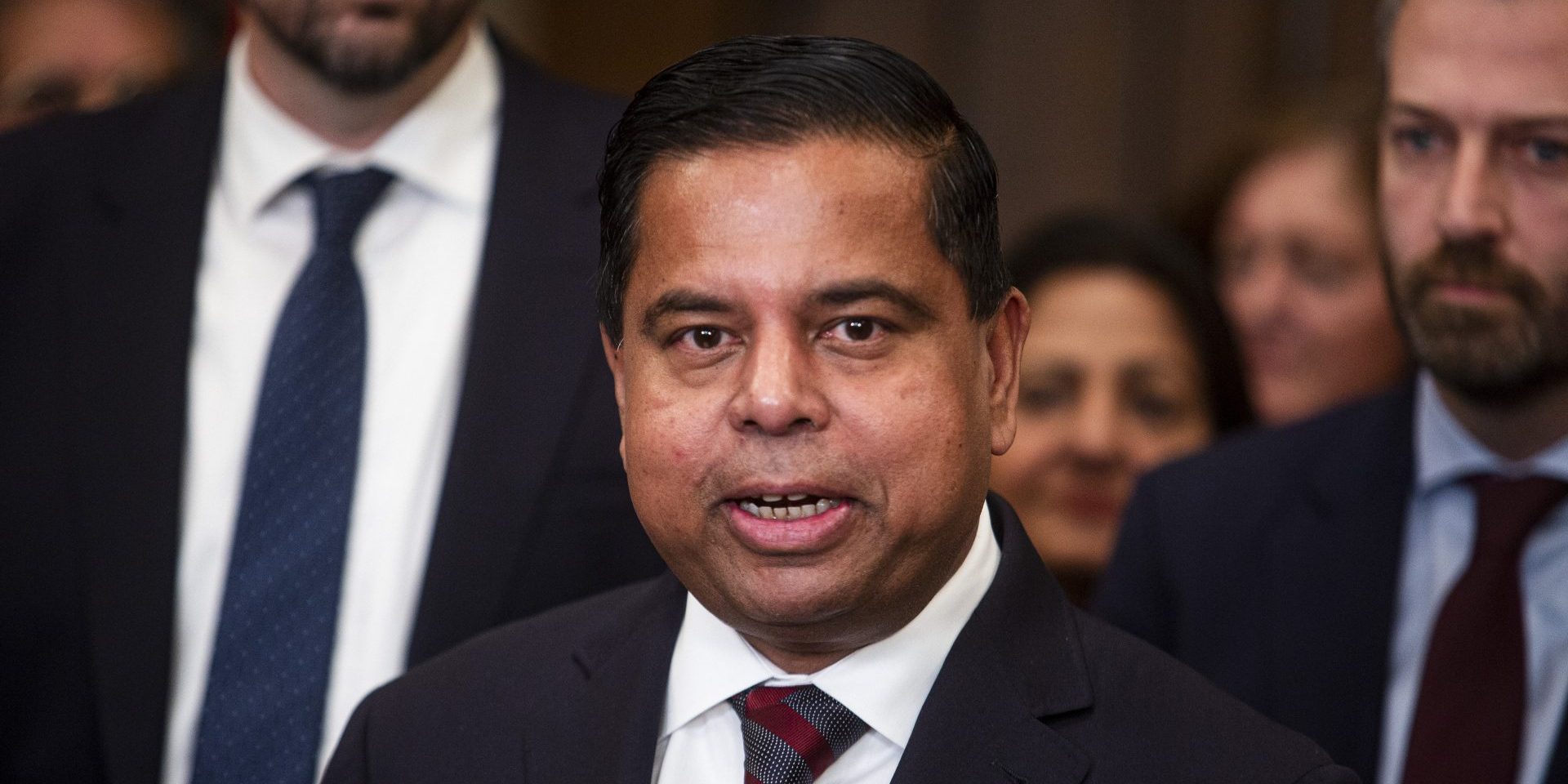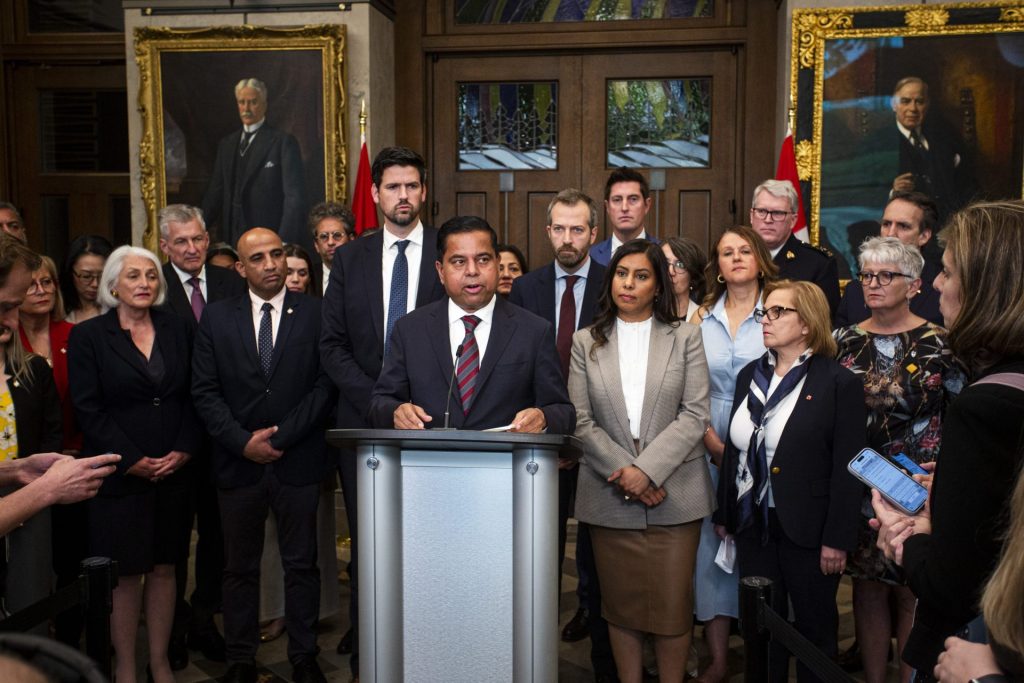Liberals crack down on asylum seekers, boost search powers for security agencies in new bill

‘Legislation corner’ is a regular feature in Politics This Morning, where this piece first appeared.
Public Safety Minister Gary Anandasangaree (Scarborough—Guildwood—Rouge Park, Ont.) introduced a new bill into the House of Commons on June 3 that proposes a long list of changes to the laws governing security and immigration in Canada.
The changes outlined in Bill C-2 would affect everything from how and when Canadian authorities can get access to Canadians’ communications and personal data; where and when they can search packages, cargo, and mail; and what information is shared with security agencies in the United States.
It would also cut the arm’s-length Immigration and Refugee Board out of the process of evaluating asylum applications made by migrants who have been in this country for more than a set amount of time: 14 days for those coming across the Canada-U.S. border, and one year for all others. Those migrants would instead be scheduled for deportation, with departmental officials in charge of deciding whether returning them to their country of origin would endanger their safety.
Only a few of the proposed measures had been included in the Liberal platform.
Neither the bill nor any background documents were provided to Hill-accredited journalists before a technical briefing on its contents by senior public servants. The content of the bill itself still had not been released prior to a press conference called on June 3 by the minister.
Anandasangaree confirmed that many of the proposals in the bill were made to address complaints from U.S. authorities. He said he would be meeting with President Donald Trump’s “border czar,” Tom Homan, on June 3 to discuss the bill.

What’s in the bill
Bill C-2 bears the short title of the “Strong Border Act.” It is 126 pages long, includes 16 distinct sections, and proposes to make changes to more than a dozen laws covering everything from personal privacy to drugs, immigration, financial institutions, Canada’s intelligence agency, and more.
In addition to the changes listed above, the bill includes measures that would do the following:
- Allow the government to cancel and/or stop accepting applications for permanent resident visas, temporary resident visas, work permits, electronic travel authorizations, or study permits from foreign nationals during a set period of time. It would allow the government to apply such an order to “certain foreign nationals,” or types of applications if it so desires.
- Allow the government to cancel permanent resident status or temporary resident status for individuals within Canada if it wishes to do so.
- Help law enforcement agencies get access to information and data about Canadians more easily from online service providers, including their name, address, telephone number, email address, types of services accessed, and more.
- Allow police or other authorities to demand that their orders to online service providers to reveal personal information be kept secret for up to one year.
- Allow the RCMP to share data on Canadian sex offenders with authorities in the United States.
- Allow police officers to obtain a warrant to covertly install tracking devices or software on an individual’s personal electronic device.
- Require the owners of warehouses and other facilities near border crossings to make it easier for border officers to search their facilities.
- Give authorities more power to open and search through mail.
- Bar cash transactions of $10,000 of more in order to prevent money laundering.
- Give the government greater powers to classify and control “pre-cursor” chemicals used to produce fentanyl and other drugs.
Those are only some of the many changes proposed in the bill.
The Liberal election platform had promised to improve security by hiring more border officers and RCMP officers, training more K9 teams, buying more scanners and drones, and investing in the Public Prosecution Service.
It had also included a promise to allow police to search for and seize “fentanyl and other contraband” in the mail with a warrant, and had referred in general terms to “identifying and removing inadmissible individuals” and “enhancing enforcement against immigration fraud.”
Anandasangaree said that the various new security powers were justified because voters had given his government “a mandate to ensure the safety and security of Canadians.” He called on “all parties to come together to support this very important legislation.”
As of June 3, the government had not initiated the process of striking House of Commons committees, which are responsible for studying the details of government.
This piece first appeared in Politics This Morning, your go-to source for insider news, analysis, and updates on where all the key political players are that day. Get more insider coverage directly to your inbox from The Hill Times‘ editor Peter Mazereeuw and reporter Riddhi Kachhela in this subscriber-only daily newsletter. Sign up here.
The Hill Times






 LICENSING
LICENSING PODCAST
PODCAST ALERTS
ALERTS













